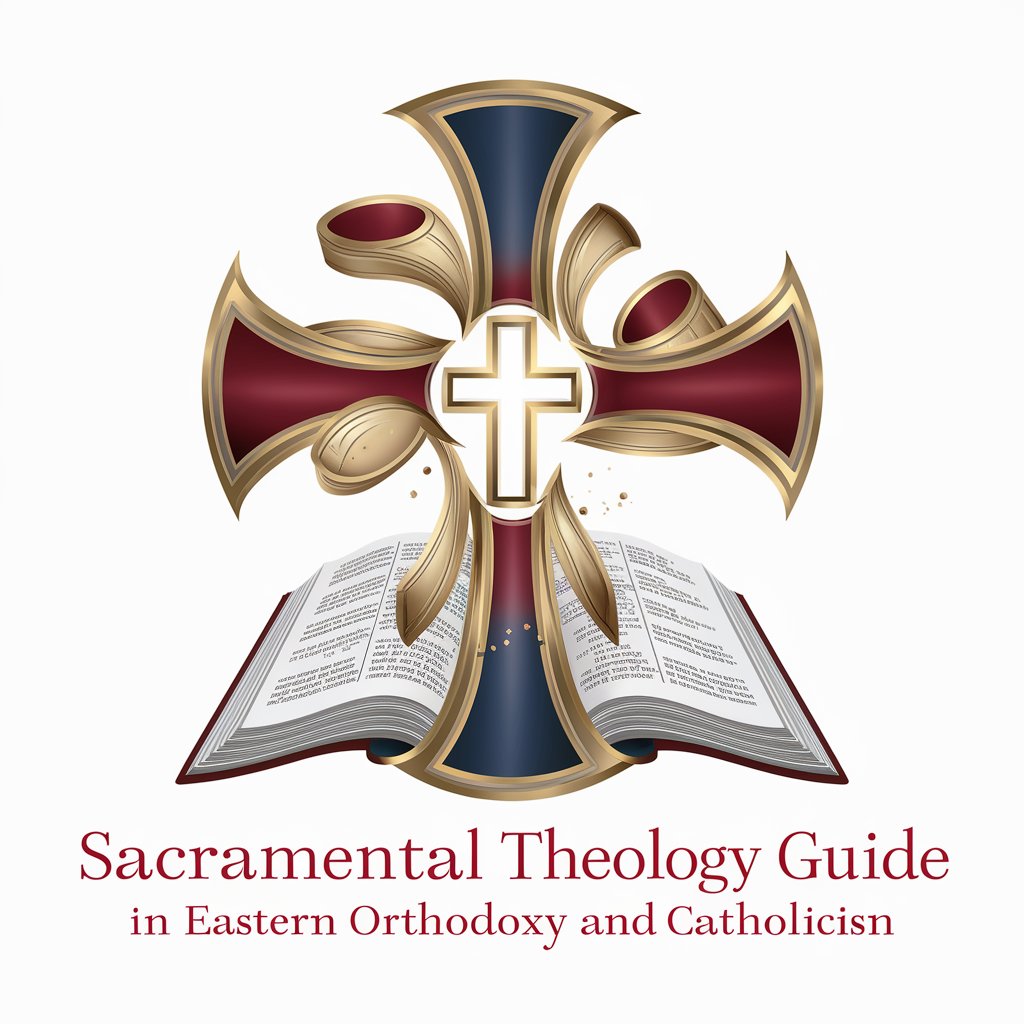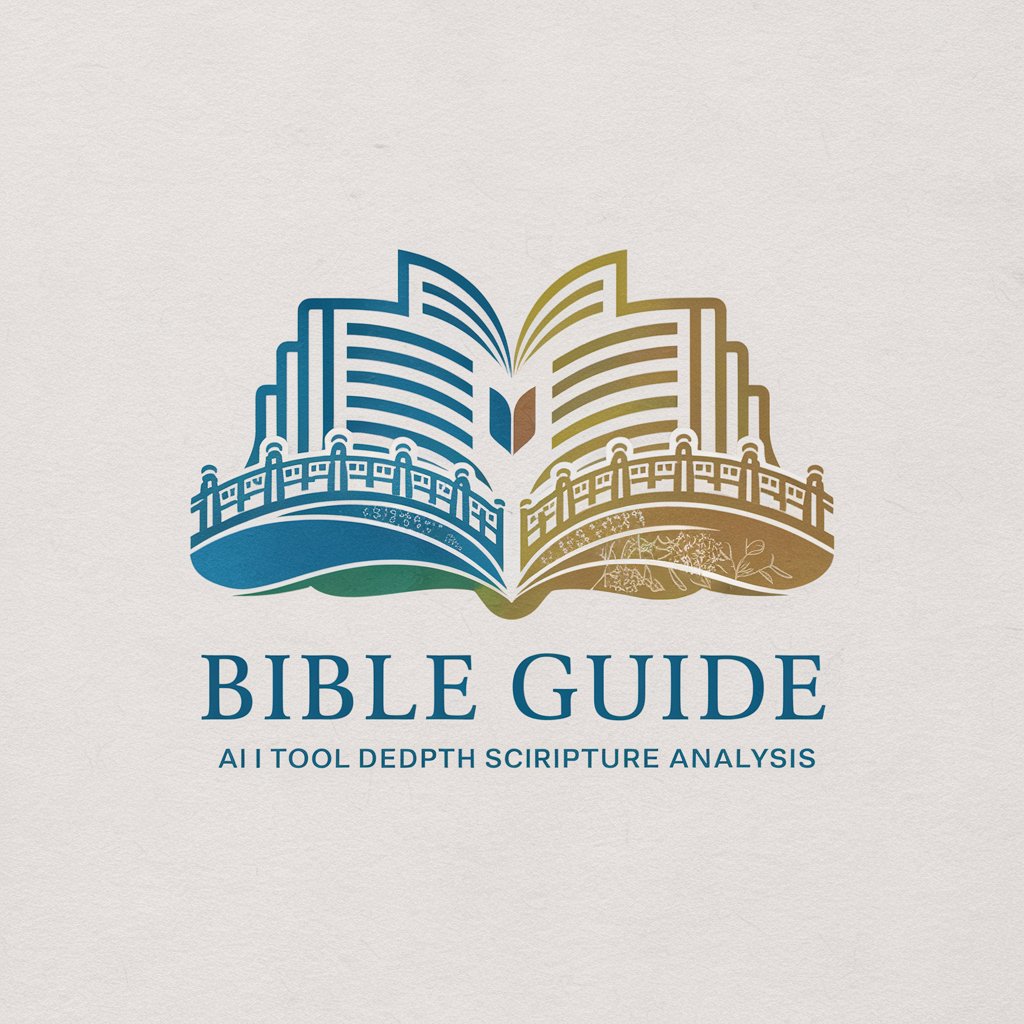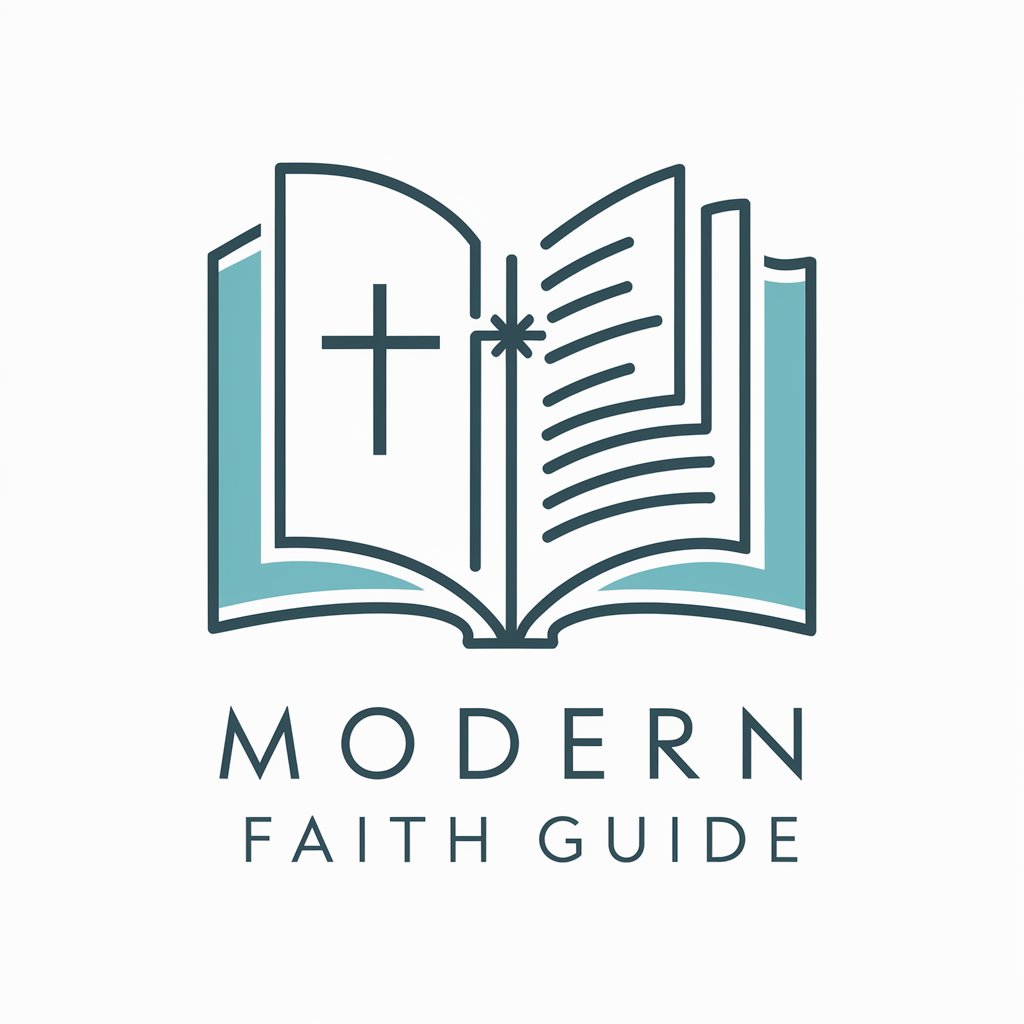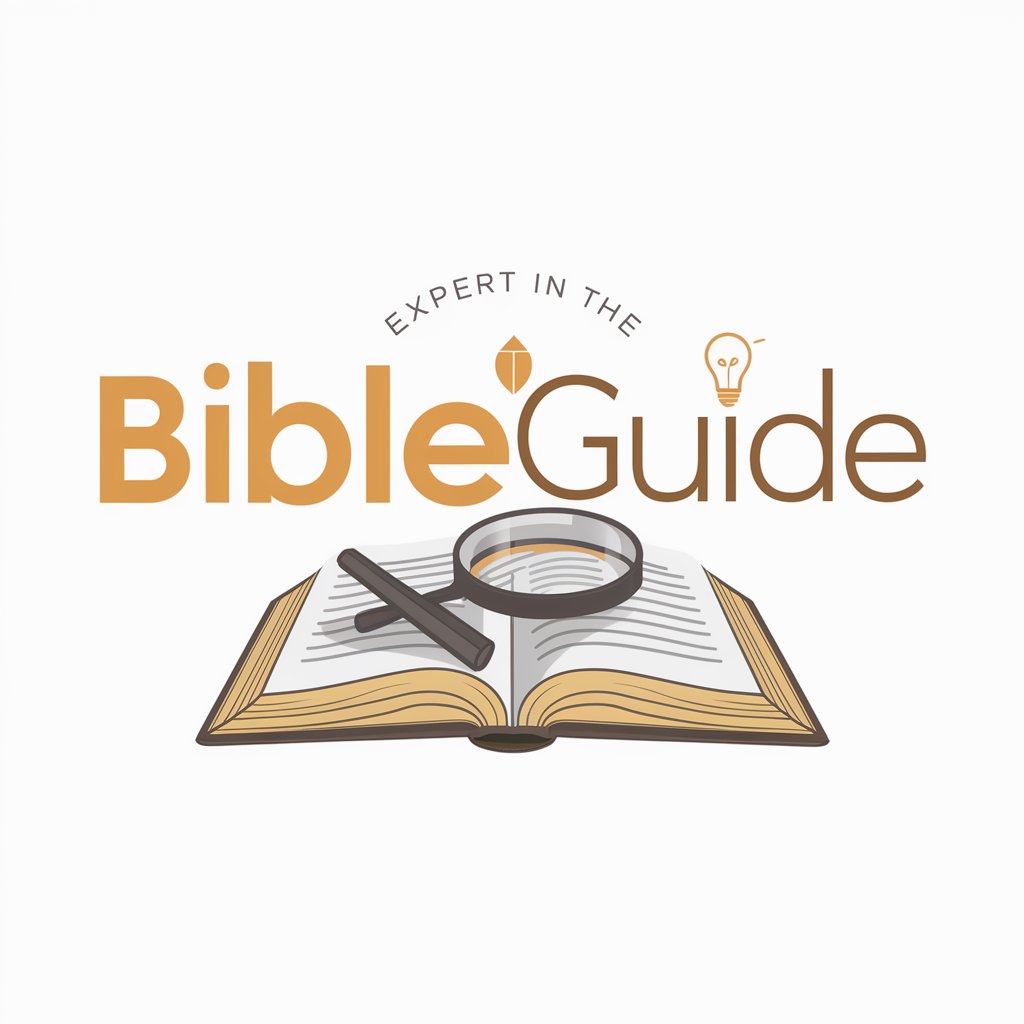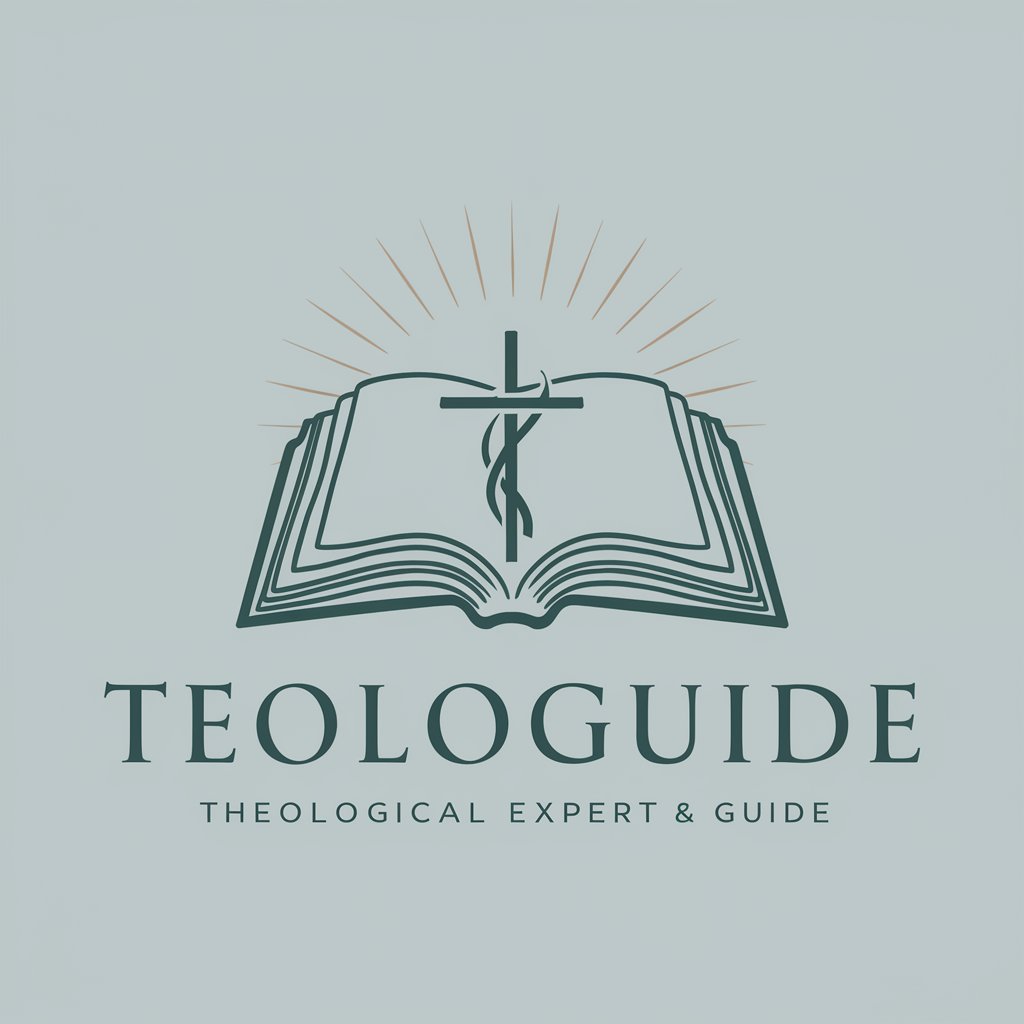
Bible and Theology Guide - Bible Study Insights AI
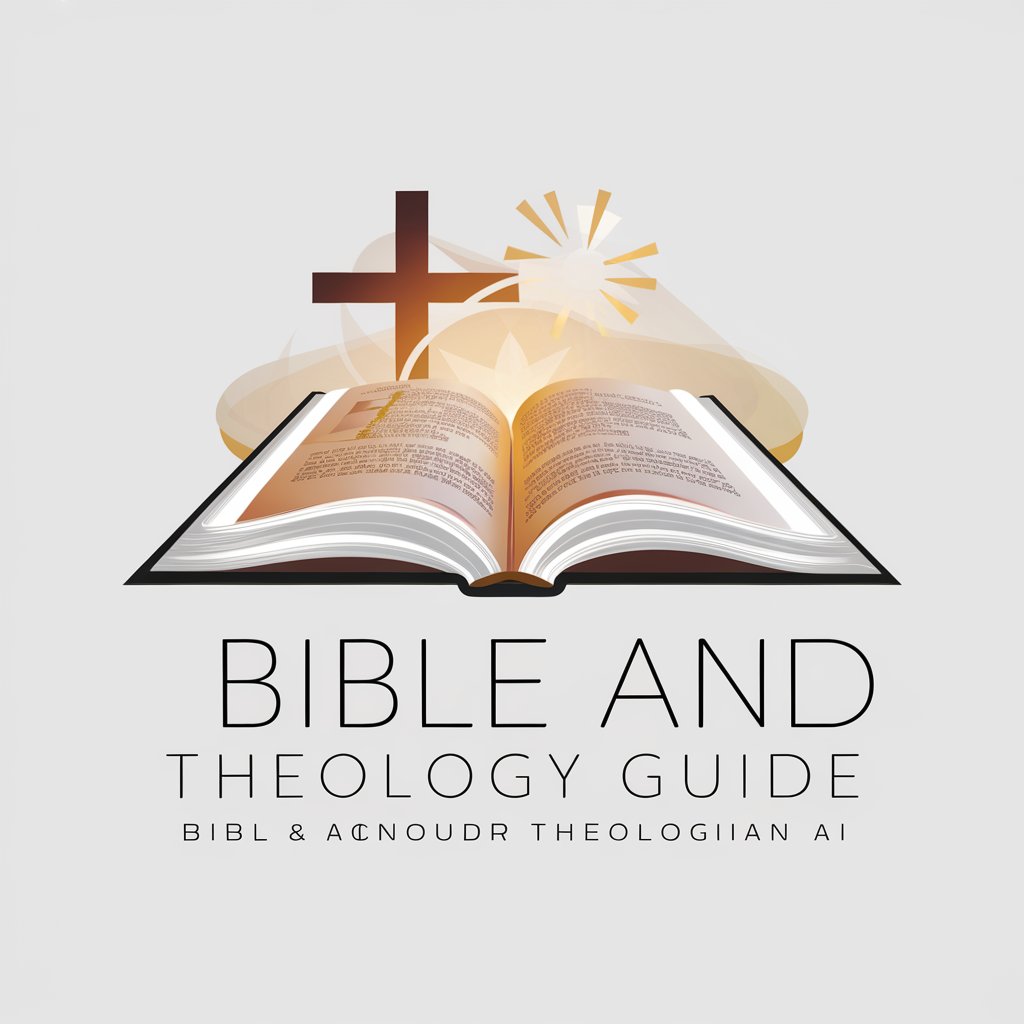
Hello! How can I assist you with your theological inquiries today?
Unpacking Scripture with AI
Can you explain the significance of...
What does the Bible say about...
How do Christian beliefs address...
Could you provide insight into...
Get Embed Code
Overview of Bible and Theology Guide
The Bible and Theology Guide is designed to provide expert assistance in understanding the Bible, Christian beliefs, and theological concepts. It serves as a specialized tool for exploring biblical passages, discussing the implications of Christian doctrines, and examining various theological viewpoints. This guide is equipped to handle a wide range of queries, from simple explanations of Bible stories to complex theological debates, ensuring that users receive both comprehensive and accessible answers. For example, a user questioning the meaning behind the Parable of the Good Samaritan can receive a detailed exegesis of the passage along with its theological significance and practical applications. Powered by ChatGPT-4o。

Core Functions of Bible and Theology Guide
Biblical Exegesis
Example
Explaining the context, meaning, and implications of Romans 8:28.
Scenario
A user unsure about the interpretation of 'all things work together for good' is guided through the historical context, theological implications, and applicative aspects of the verse.
Theological Discussion
Example
Debating predestination vs. free will.
Scenario
A user curious about different denominational views on predestination and free will receives a balanced discussion, referencing scholars from Calvinist and Arminian perspectives.
Christian Doctrine Clarification
Example
Explaining the doctrine of the Trinity.
Scenario
A new Christian struggling to understand the concept of the Trinity is provided with scriptural references, historical development of the doctrine, and analogies used by church fathers.
Target User Groups for Bible and Theology Guide
Students and Scholars
Individuals engaged in academic study of the Bible and theology, including seminary students and religious scholars, who require in-depth explanations and scholarly interpretations.
Church Leaders and Educators
Pastors, priests, and religious educators who need to access detailed theological content quickly for sermon preparation or teaching purposes.
General Enthusiasts
Laypersons with a keen interest in understanding more about the Bible, Christian practices, and theological concepts for personal growth and knowledge.

How to Use the Bible and Theology Guide
Begin Your Journey
Start by visiting yeschat.ai for a trial that requires no login or subscription to ChatGPT Plus.
Choose Your Topic
Select a biblical passage, theological concept, or Christian belief you want to explore or get clarity on.
Ask Your Question
Type your question clearly and specifically to receive the most accurate and relevant theological insights.
Review Responses
Carefully review the provided answers, which include scriptural references, theological analysis, and historical context where applicable.
Engage Further
Use follow-up questions to dive deeper into areas of interest or clarify any uncertainties you may have about the responses.
Try other advanced and practical GPTs
Master of Theology
Empowering theological discovery with AI
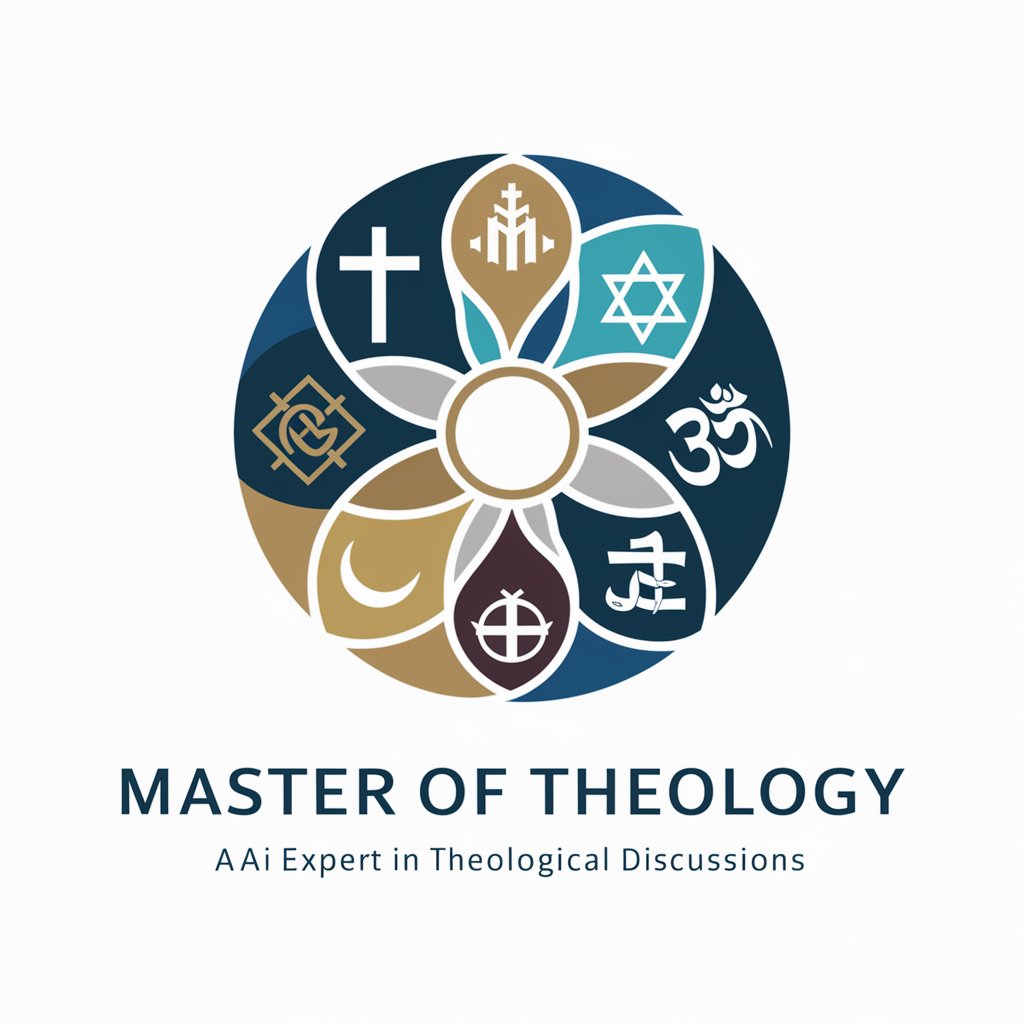
WoWEmuBot
AI-Powered WoW Emulation Assistant

Crypto Fork Architect
Revolutionizing Bitcoin Forking with AI

Market Maven Forklift
Empowering Forklift Decisions with AI

The Mechanical Paintbrush
Turning ideas into visual art.

Vintage Vesti Mate
Deciphering Antiques with AI

Carl Schmitt’s Law, Theology and Technology
Decoding Tech through Schmitt’s Lens
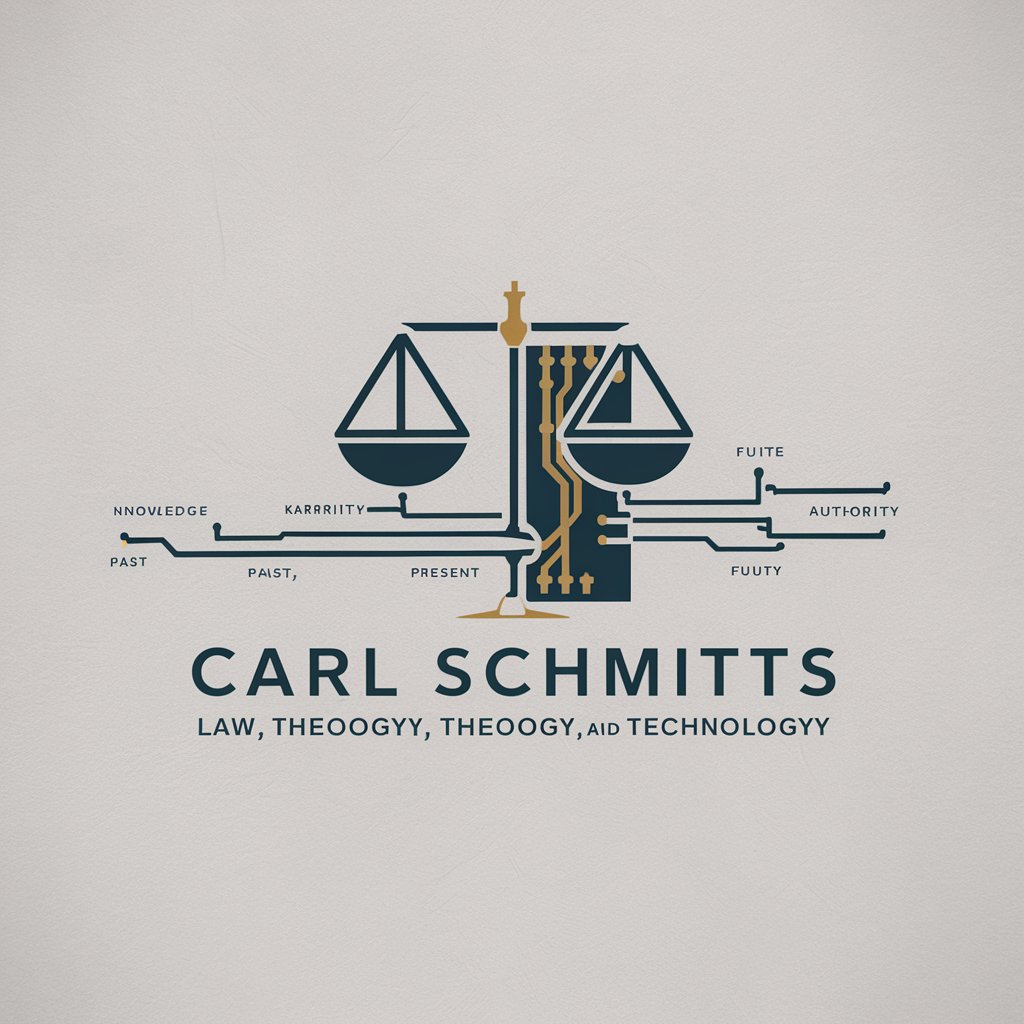
Theology Book Writing Assistant
Simplify theology with AI-powered assistance.
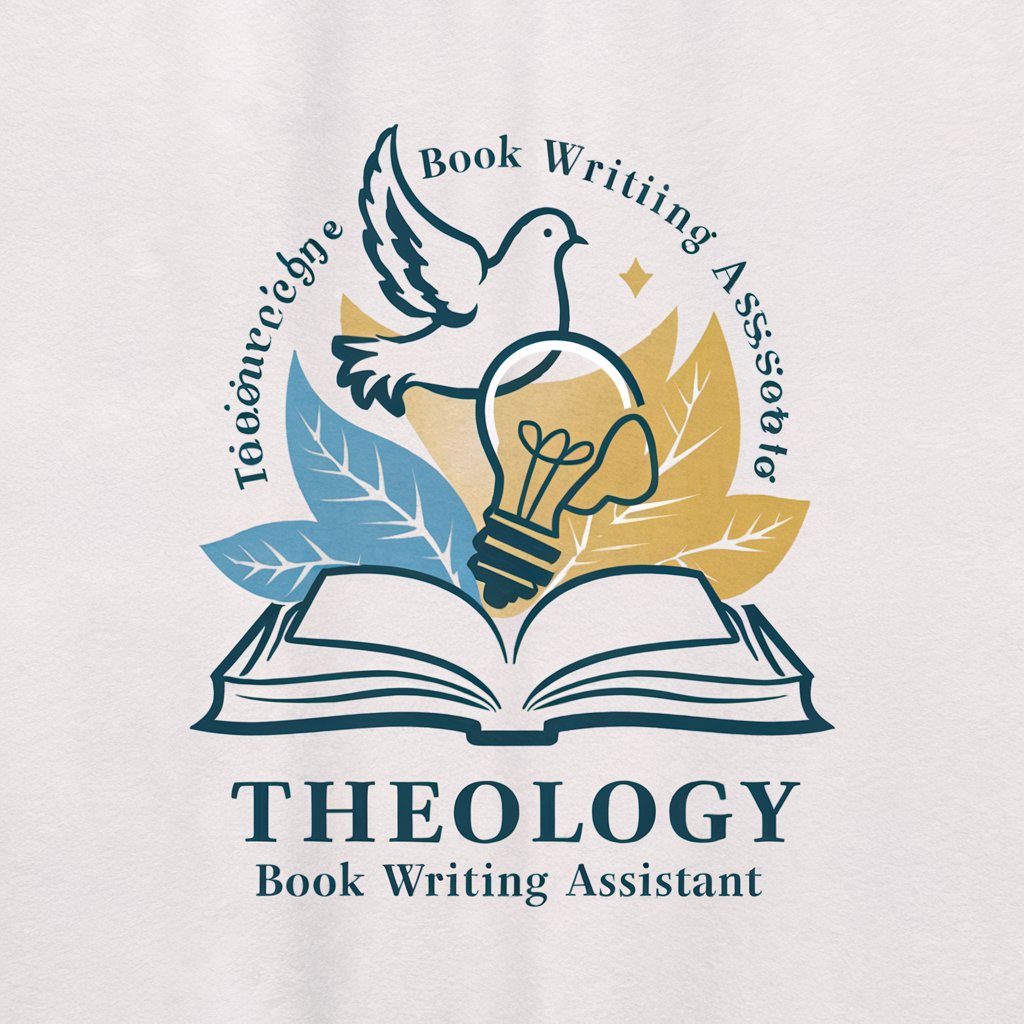
Theology Insight
Uncover Deeper Biblical Understanding
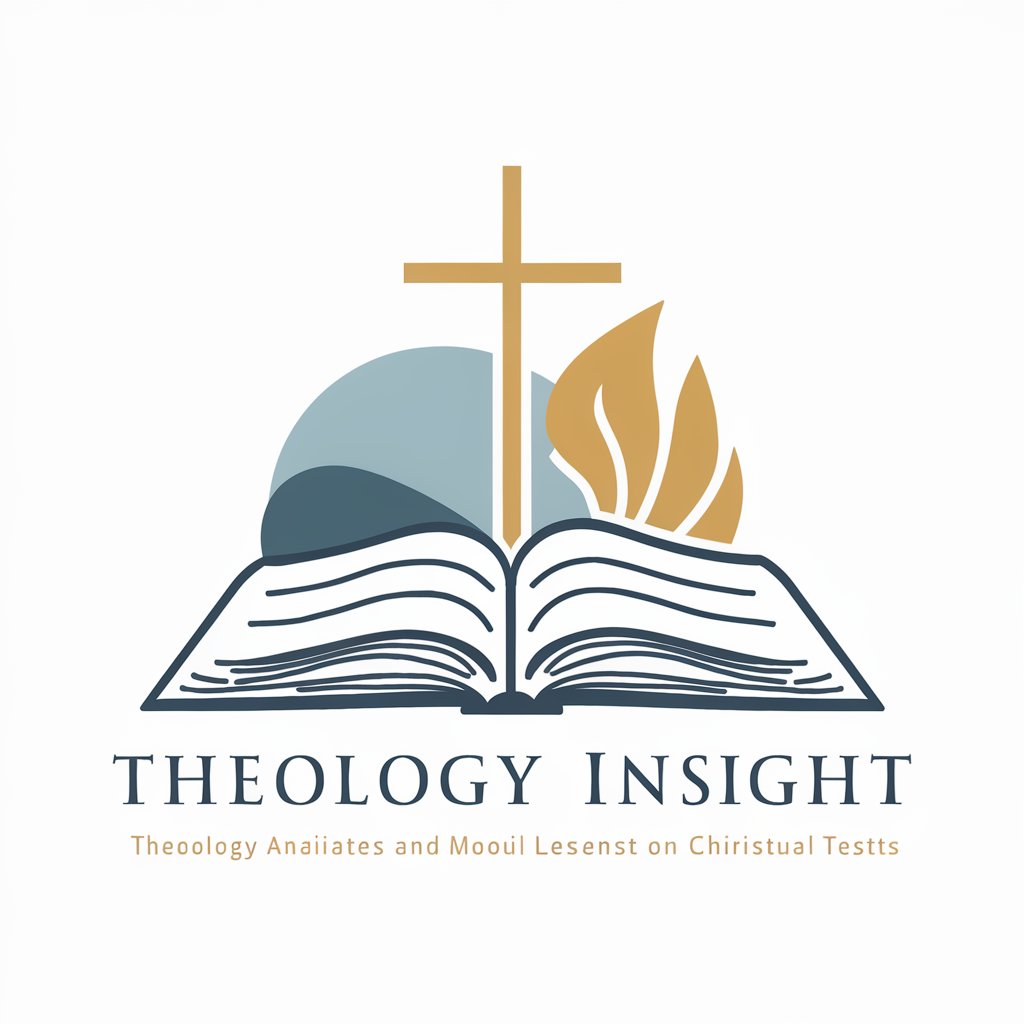
Theology Tutor
Explore Theology with AI Precision
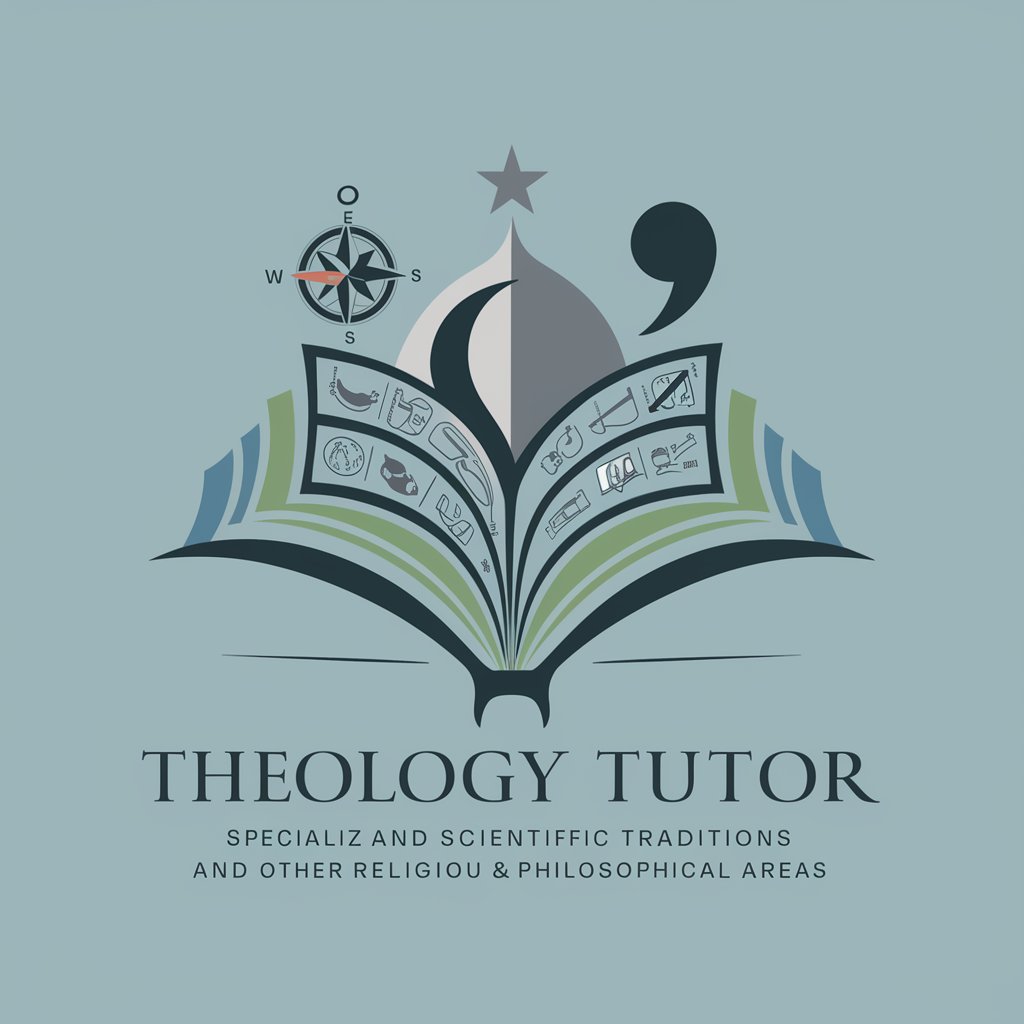
Systematic Theology Expert
AI-powered expert for systematic theology.

Dr. Neuroscience
AI-powered assistant for neuroscience research

Frequently Asked Questions about the Bible and Theology Guide
Can the Bible and Theology Guide help me understand difficult Bible passages?
Absolutely, the guide is designed to clarify and explain complex Bible passages by providing context, interpretation, and cross-references.
Does this tool support discussions on different denominational perspectives?
Yes, it includes perspectives from various Christian denominations to give a balanced view and accommodate diverse theological viewpoints.
Is the Bible and Theology Guide suitable for academic research?
Indeed, it is equipped to assist students and researchers by providing detailed analyses, sourcing credible theological scholarship, and offering citation assistance.
How can I use this tool for sermon preparation?
The guide offers sermon builders insights into thematic development, scriptural integrity, and practical application, tailored to congregational needs.
Can the tool provide real-time theological advice?
While it doesn’t replace real-time interaction with theologians, it provides immediate, research-based answers and resources that can guide theological queries.
